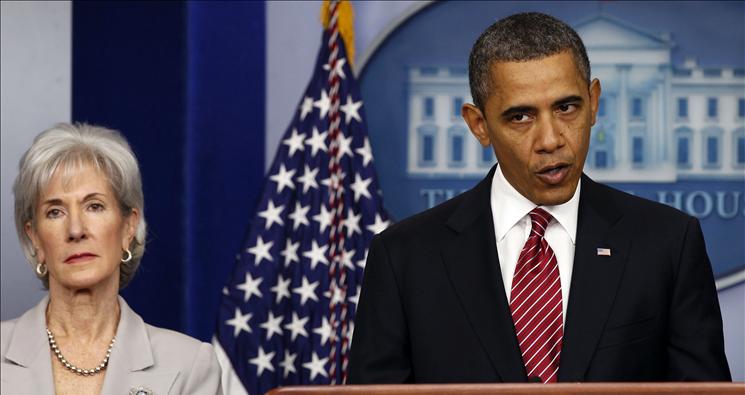Narrow Defeat of Religious Liberty Amendment in the U.S. Senate
Today, the United States Senate voted to defeat the Blunt Amendment, disregarding the First Amendment and the best of our country’s traditions, not to mention its foundational principles. The vote was narrow, 51-48, but a defeat nonetheless.
As explained here, the amendment would have provided comprehensive conscience protection to all stakeholders within the health insurance system, including institutions of all religious beliefs and denominations. It would have been the first blow to the Department of Health and Human Services and its mandate forcing health insurance plans to cover abortion-inducing drugs, sterilization, and contraception.
To those Senators who voted in favor of the amendment: thank you for your stance in support of the rights of conscience. While this should have been a bipartisan issue, as every issue implicating the rights of conscience should be, Democrat Senators Casey, Manchin and Nelson deserve a special word of thanks.
People should know, however, that the Senate’s failure today to protect conscience rights and honor religious civil liberties is not the end of the matter. Far from it. Not only is the Respect for Rights of Conscience Act still pending in both houses of Congress (S. 1467, H.R. 1179), the ultimate clash between religious institutions and the administration -- the claim of conscience vs. the law of Leviathan -- has yet to take place. Will the federal government, not to mention the country, stand idly by when religious hospitals, soup kitchens, homeless shelters, and schools shut down because they refuse to violate their conscience; because they cannot violate their conscience? While it is my sincere hope it never comes to this, such will be the deciding moment if preemptive litigation does not succeed.
This is not mere speculation. As recently reported, Cardinal Francis George of Chicago has made it clear that if the HHS mandate remains in full effect, and conscience rights are not restored, Catholic hospitals will be driven out of existence in two years’ time.
I, for one, don’t think citizens will be fooled by the White House spin when important social services are shut down on account of the government’s failure to accommodate religious liberty and conscience. The strength of our nation doesn’t lie in the federal bureaucracy taking care of those in need; it lies in the government giving private groups and charities the freedom, and support where needed, to take care of those in need. It is a matter of historical truth that, since the earliest days of our republic, religious charities and groups have taken the lead in caring for the sick, hungry, and homeless, with or without government support. And it is a matter of social philosophical truth that respecting the principle of subsidiarity -- neither the state nor any larger society should substitute itself for the initiative and responsibility of individuals and smaller local organizations -- is the best and most effective means of providing such services.
As President Obama observed, on the same day he finalized the HHS mandate, “local churches often [do] more good for a community than a government program ever could.” Words, however, are one thing; actions are another. Instead of implementing the truth of his observation, the President and his administration are working against it.
It has been said before, but needs to be said again: this issue is not about women’s health or family planning services. It is about religious freedom and the autonomy of conscience. If the administration truly thought that universal access to free contraceptives was of such critical importance to this country, it could provide and subsidize such services itself, without having to coerce religious groups and private employers into doing so.
In a statement issued before today’s vote, Secretary Kathleen Sebelius of HHS opposed the Blunt Amendment, concluding “We encourage the Senate to reject this cynical attempt to roll back decades of progress in women’s health.”
It’s difficult to fathom what’s worse: the ludicrous nature of this assertion, or that anyone could possibly believe it.
Congressional allies of conscience are not seeking to prohibit contraceptive services to women and a governmental mandate forcing religious institutions and private businesses to include abortifacients in their health insurance plans is not decades old. The HHS mandate was finalized less than one month ago.
What is decades old, in fact centuries old, is our country’s longstanding respect for the rights of religious conscience. Even before the ratification of the U.S Constitution in 1788, even before the signing of the Declaration of Independence in 1776, the Continental Congress passed a resolution in 1775 exempting individuals with pacifist religious convictions from military conscription:
As there are some people, who, from religious principles, cannot bear arms in any case, this Congress intend no violence to their consciences, but earnestly recommend it to them, to contribute liberally in this time of universal calamity, to the relief of their distressed brethren in the several colonies, and to do all other services to their oppressed Country, which they can consistently with their religious principles.
An eloquent and courageous statement. Even when the country was in dire need of men to take up arms to fight for independence, our forefathers knew that conscience is inviolable and must be honored. They understood that to conscript men into military service against their conscience would have undermined the very cause of liberty to which they pledged their lives, fortunes and sacred honor.
The defeat of the Blunt Amendment should be a wake up call to citizens, to everyone concerned about their constitutional rights and fundamental freedoms, about what’s ultimately at stake in this matter. It’s unfortunate, but nonetheless true: we sometimes don’t appreciate what we have until we lose it.
This first skirmish may be a loss, but the battle is far from over.
